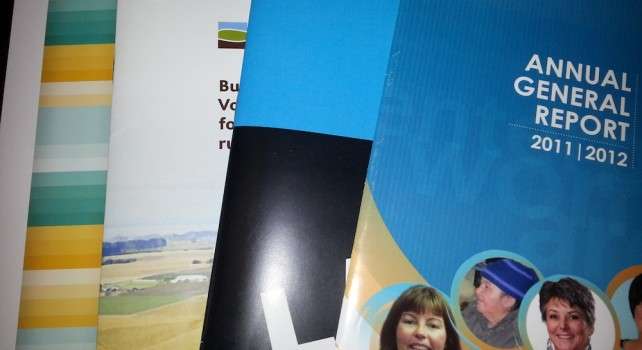
Blog
Fighting for Nonprofit Accounting Principles – Archived Content
Accounting rules can seem so far away from the important work a charity or nonprofit does, but there is a set of proposed changes that will affect almost every organization in the country. The unique nature of not-for-profits and sector accounting is being ignored by the new principles proposed by the Accounting Standards Board (PDF). This is a conversation that every charity treasurer and finance committee needs to join.
The proposed standards will have significant impact on charities and nonprofits, as outlined in Imagine Canada’s brief to the Board.
Who wants complicated stories?
Charity accounting rules are complex enough. Nobody wants financial statements that have to be explained. The simpler the map from the donation to the good work done in society, the better.
Take for example trying to explain to a donor that a charity had a surplus in 2013 because it received a large donation, but a loss in 2014 because the money was not spent on the designated project until that year (all other things being equal). This may invite donor suspicions as to whether the charity is using money to fund administration, or is unable to manage its finances.
Nonprofits have to produce financial reports the way funders require, or they risk losing their funding. In addition, many funders want to see how the reports sent to them by a charity tie in with the charity’s audited financial statements. It’s just good due diligence. If a funder’s requirements conflict with the accounting principles used in the charity’s financial statements, then two separate reports will have to be prepared and reconciled.
No More Matching
“The Matching Principle is dead,” was how the audit partner at a charity client put it, referring to the requirement for organizations to match expenses with related revenue. The idea is simple: record revenues and associated expenses in the same year. If you haven’t spent the funding for a program, you don’t show the revenue. Every funder requires this treatment, but the for-profit world is moving away from it, and now these proposed changes may force nonprofits in the same direction.
Buying Widgets vs. Helping the Homeless
Another way to look at this issue is if you buy a product from a manufacturer, you don’t care what they do with the money. They can spend it on salaries, research, marketing or even administration. It doesn’t matter. But in the nonprofit world, funders wants to know exactly what happens to their money. It’s like every dollar has to have a flag attached to it so you can follow it through the system. If these principles go through, donors may very well struggle to clearly understand how their support is being used. Not only will they care, but they can even sue the charity if funding gets used differently from their agreement.
Act Now
The proposed changes don’t fit the unique nature of nonprofit fiscal management. Get the Treasurer, the Finance Committee or your auditor to determine the impact of the new accounting principles on your organization and use ONN’s template to send them to the Accounting Standards Board by December 15. For more detailed explanations, go to the Ontario Nonprofit Network’s page on this issue and the Hilborn Charity Resources analysis.
Together organizations can take action to ensure their voices are heard and that the Accounting Boards are made aware. The sector deserves policy that meets the needs of nonprofits, not principles for business!
About the Author
Bill Kennedy, CPA, CA is a Canadian professional accountant who helps charities sort through their finances, create clear reports, and implement the computer systems to support them.


